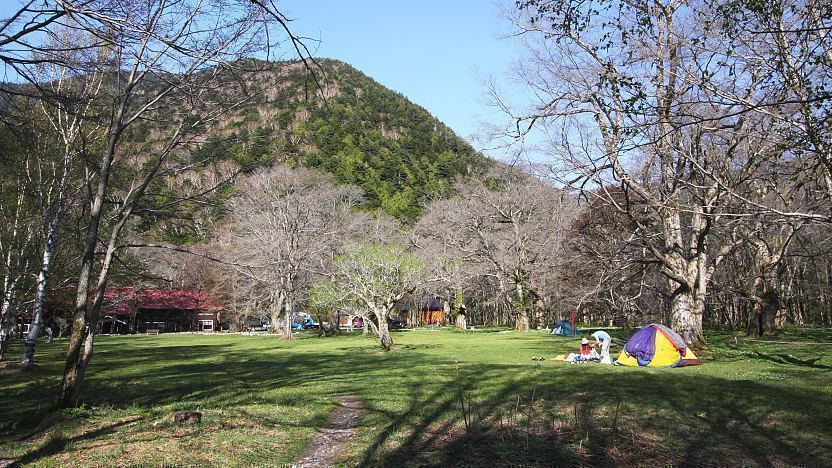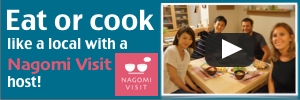Budget Travel - Accommodation

Unless you can stay at a friend's or relative's home, accommodation is going to be one of your biggest expenses. While Japan offers the standard budget-oriented places like hostels, dormitories and inexpensive business hotels, there are also some unique types of accommodation, such as capsule hotels, manga cafes and 24-hour baths.
General strategies
- We recommend to research and reserve your accommodation well in advance, especially when traveling during peak seasons to avoid bad surprises and to save time and nerves during your trip. Those who prefer to remain flexible should at least be aware of good reservation websites or prepare budget accommodation listings for the cities visited.
- Last-minute reservations, while possible, are not a proven money-saving technique in Japan. Depending on when you travel, they may even be impossible, as some cities get completely booked out during big events like festivals or the cherry blossom and autumn leaf seasons.
- Use the internet to compare hotel rates. Some of the best reservation websites for Japan are in Japanese, such as Rakuten Travel and Jalan. Both websites also maintain English versions, but they feature considerably fewer listings than the Japanese versions. International booking websites, such as Booking.com and Agoda, have also greatly improved their database of Japanese budget lodgings a lot in recent years. Another good website for budget travelers is Hostelworld.
- Note that some hotels and ryokan in tourist resorts raise their room rates considerably during peak travel seasons such as New Year, Golden Week and Obon and to a lesser degree on Fridays and Saturdays. The same is generally not true for hotels in business districts.
- Consider staying in less central locations, perhaps a few train stations outside the city center or a 10-20 minute walk from the closest station. Also consider the perks available at some places, such as included meals, free or discounted bicycle rentals or complementary shuttle bus rides.
- Use collected points of an airline or hotel mileage program on your hotel stays.

Types of budget accommodation
Below are the various types of budget accommodation found in Japan with their typical price ranges:
- Hostels, backpackers and dorms (2,000 - 4,000 yen/person)
Hostels, backpackers and dormitories are budget-oriented lodgings that are mostly found in Japan's larger cities. Although private rooms may be available, guests usually stay in shared rooms that may be segregated by gender. Other facilities, such as showers, toilets, kitchens and other living spaces are typically also shared.
Hostel-style accommodation tends to be frequented by international travelers who may enjoy the sociable atmosphere that a hostel cultivates. In addition, some hostels offer their guests free or discounted bicycle rentals and sightseeing tours.
Be aware that hostels tend to be in older buildings, and some hostels maintain a curfew at night when the entrance doors are locked. Also, some hostel require their guests to be members of a hostel association, in which case registration can usually be made at check-in for a small fee. Hostelworld is a leading online reservation site for hostels in Japan.
- Ryokan, minshuku and pensions (5,000 - 10,000 yen/person)
If you prefer Japanese-style accommodation, consider a minshuku (Japanese-style bed and breakfasts) or low-budget ryokan (Japanese-style inns). The two are similarly styled and typically charge between 5,000 and 10,000 yen per person per night, sometimes including one or two meals. No-frills, budget minshuku and ryokan can be found for as little as 4,000 yen per person per night, but do not usually include meals. Pensions are comparable to minshuku except that they offer Western-style rooms instead of Japanese-style rooms.
- Business hotels (6,000 - 12,000 yen single room, 8,000 - 15,000 yen double room)
Business hotels offer small, simple Western-style rooms that usually consist of a bed, desk, TV, and private bathroom and toilet. They are often conveniently located near train stations and may include breakfast. This option is especially attractive if traveling in pairs as the cost is similar to cheaper options, but at a higher level of comfort. Popular business hotel chains include Route Inn, APA Hotel, Toyoko Inn and Super Hotel.
- Manga cafes (1,500 - 3,000 yen/person)
Manga cafes (lit. comic book cafes) are establishments where you can rent time at a computer either hourly or for the night. The simplest places offer just some banks of computers with chairs, a selection of comic books and little to no privacy and are not suited for an overnight stay.
A lot of establishments, however, also offer their customers drinks, snacks, shower facilities, game rooms and quiet areas to rest or private booths, which may be equipped with couches or Japanese mattresses (futon). Some manga cafe chains require that you sign up for a membership which may come with a small registration fee.
- Capsule hotels (3,000 - 5,000 yen/person)
Capsule hotels accommodate their guests in small capsules rather than rooms. The capsules are essentially enclosed bunk beds that are often stacked two high and may include a television, light and heating controls inside. Shared showers and toilets are provided, while personal belongings are usually stored in lockers. Some hotels also have lounges, restaurants and a public bath.
Capsule hotels are mainly found around major train stations and tend to cater towards men. These days, however, you can also find an increasing number of women-only capsule hotels, or hotels that have gender-segregated floors.
- 24-hour baths (2,000 - 5,000 yen/person)
24-hour baths are a type of public bath usually found in large cities that are open 24 hours a day. In addition to the baths, some facilities provide lounging areas, large comfortable chairs or private rooms where visitors can rest for the night. The baths are gender-segregated while the rest areas generally are not. Some well known 24-hour baths include LaQua in Tokyo and Spa World in Osaka.
- Vacation rentals (from around 5,000 yen/property)
Inexpensive vacation rentals can be among the cheapest accommodation options around, especially for groups of travelers. The leading website for vacation rentals in Japan is Airbnb.
- Weekly/monthly mansions (40,000 - 100,000 yen/month)
Weekly/monthly mansions are a type of accommodation for residents unwilling or unable to enter a long-term apartment rental contract, but they can also be attractive to travelers who stay in a city for a week or longer. Weekly/monthly mansions are typically furnished private or shared apartments, with some of them specifically targeting foreigners, in which case they are also known as gaijin houses ("foreigner houses").
Weekly/monthly mansions are most prevalent in larger cities, but also exist in smaller cities and in the countryside, although outside major urban areas they are less likely to cater to foreign travelers. While some establishments require a minimum stay of one month, others also offer weekly or even daily rates that can compete with budget hotel rates.
- Overnight transportation
Overnight transportation has the dual benefit of combining cheap travel with the savings of a night of accommodation. An additional benefit is that you can gain back sightseeing time that you would otherwise have lost traveling between cities. Of course to be effective, this requires that you can sleep, or at least rest, while on the move.
Generally speaking, buses are the most practical and economical option for budget travelers, while overnight trains and overnight ferries are available only on a very limited number of routes. For more information see our page on budget transportation.
- Tour packages
Also worth considering are tour packages, which combine transportation with accommodation. Large tour companies usually purchase hotel rooms in large numbers and are able to offer accommodation at rates below those available to individual consumers.
- Camping
Camping in Japan is generally allowed only on designated campgrounds, which are found across Japan, especially in the countryside and in national parks. Campgrounds in cities are rare to non-existent. The overnight cost is a few hundred yen per person or around 1000 yen per tent if you bring your own tent. Some campgrounds also provide tents or cabins for rental. Note that some campgrounds are closed during winter.
Questions? Ask in our forum.


